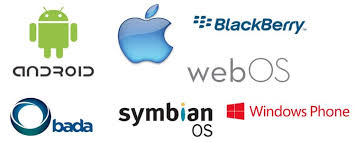Smartphone Operating System Market: A Comprehensive Overview
Market Overview
The smartphone operating system (OS) market is a pivotal segment of the broader mobile technology industry. It encompasses the software platforms that facilitate the operation of smartphones, enabling users to interact with their devices, run applications, and connect to the internet. As smartphones have become integral to daily life, the demand for efficient and user-friendly operating systems has soared. According to Market Research Future, the market was valued at USD 164.5 Bn in 2022 and is expected that it will reach USD 330.2 Bn, with a CAGR of 7.2% during forecast period (2023-2032).
The market is driven by continuous advancements in mobile technology, increasing smartphone penetration, and the growing demand for enhanced mobile applications. The rise of 5G technology, coupled with innovations in artificial intelligence (AI) and machine learning (ML), is further propelling the evolution of smartphone operating systems.
Request To Free Sample of This Strategic Report - https://www.marketresearchfuture.com/sample_request/4751
Key Market Segments
Android OS
Android, developed by Google, is the most widely used smartphone operating system globally, commanding a market share of over 70%. It is an open-source platform, allowing device manufacturers to customize the OS for their hardware. Android's flexibility, extensive app ecosystem, and integration with Google's services make it a popular choice among both manufacturers and consumers.
iOS
iOS, developed by Apple Inc., is the second most popular smartphone operating system, holding a market share of approximately 25%. Known for its seamless user experience, security features, and integration with Apple's ecosystem, iOS is preferred by a significant segment of the market. The exclusivity of iOS to Apple devices such as the iPhone and iPad ensures a consistent and controlled user experience.
Other Operating Systems
While Android and iOS dominate the market, there are other operating systems such as HarmonyOS by Huawei, KaiOS, and Tizen. These operating systems cater to niche markets and specific devices, offering alternatives to the major players. HarmonyOS, for instance, is gaining traction in China and other regions as a viable alternative to Android.
Industry Latest News
Android 13 and iOS 16 Launches
The latest versions of the leading operating systems, Android 13 and iOS 16, have introduced several new features aimed at enhancing user experience and security. Android 13 focuses on improved privacy controls, better integration with connected devices, and new customization options. iOS 16, on the other hand, offers new personalization features, enhanced privacy settings, and updates to popular apps like Messages and FaceTime.
Rise of HarmonyOS
Huawei's HarmonyOS is making significant strides in the market, particularly in China. The OS is designed to work seamlessly across different types of devices, including smartphones, tablets, and smart home devices. This cross-platform capability positions HarmonyOS as a strong contender in the evolving smartphone OS landscape.
AI and ML Integration
The integration of AI and ML into smartphone operating systems is a major trend. These technologies enhance the functionality and user experience by enabling features such as personalized recommendations, voice assistants, and advanced photography capabilities. Both Android and iOS are leveraging AI and ML to offer smarter and more intuitive user experiences.
Smartphone Operating System Companies
Google (Android)
Google's Android OS is the leading player in the market. The open-source nature of Android allows for widespread adoption and customization. Google continuously updates the OS with new features, security enhancements, and improvements in performance. The company's extensive ecosystem, including Google Play, Google Assistant, and other services, complements the Android experience.
Apple Inc. (iOS)
Apple's iOS is known for its high level of security, seamless integration with Apple's hardware, and user-friendly interface. Apple maintains tight control over its ecosystem, ensuring a consistent and high-quality user experience. The App Store, Siri, and other Apple services enhance the iOS platform, making it a preferred choice for many consumers.
Huawei (HarmonyOS)
Huawei's HarmonyOS is gaining momentum as an alternative to Android, especially in markets where Huawei has a strong presence. The OS is designed to offer a seamless experience across different types of devices, from smartphones to smart home gadgets. Huawei's focus on creating an interconnected ecosystem is driving the adoption of HarmonyOS.
Samsung (Tizen)
Samsung's Tizen OS is used in a range of devices, including smartphones, smartwatches, and smart TVs. While not as popular as Android or iOS, Tizen offers an alternative for specific Samsung devices and is part of the company's strategy to create a cohesive ecosystem.
Ask for Customization - https://www.marketresearchfuture.com/ask_for_customize/4751
Market Drivers
Increasing Smartphone Penetration
The proliferation of smartphones globally is a significant driver of the smartphone OS market. As more people gain access to smartphones, the demand for efficient and feature-rich operating systems grows.
Advancements in Mobile Technology
Continuous advancements in mobile technology, including the development of 5G networks, more powerful processors, and improved battery life, are driving the evolution of smartphone operating systems. These advancements enable the development of more sophisticated OS features and capabilities.
Consumer Demand for Enhanced User Experience
Consumers are increasingly seeking enhanced user experiences, which is driving the demand for advanced smartphone operating systems. Features such as seamless connectivity, personalized services, and robust security are becoming essential components of modern OS platforms.
Growth of the App Ecosystem
The growth of the mobile app ecosystem is another significant driver. A rich app ecosystem enhances the functionality of a smartphone OS, attracting more users and developers to the platform.
Conclusion
The smartphone operating system market is a dynamic and evolving sector, driven by technological advancements, increasing smartphone penetration, and growing consumer demand for enhanced user experiences. With key players like Google and Apple leading the market, and new contenders like Huawei's HarmonyOS gaining traction, the landscape is set for significant growth and innovation from 2023 to 2032. As regional markets continue to develop and technology continues to advance, the smartphone OS market will remain a critical component of the global mobile technology ecosystem.
Smartphone Operating System Market Highlights:



